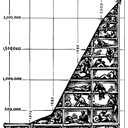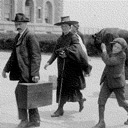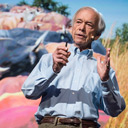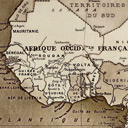
Classroom Saints and Fiends
Dana Goldstein’s The Teacher Wars shows that the failed ideas underlying today’s ed-reform crusade are as old as public education itself.


Dana Goldstein’s The Teacher Wars shows that the failed ideas underlying today’s ed-reform crusade are as old as public education itself.

The great majority of the American political class were complicit in the deceptions that led to the Iraq war—and are desperate for the rest of the country to forget it.

Naomi Murakawa’s remarkable book The First Civil Right: How Liberals Built Prison America shows how, since the 1940s, liberals have provided legitimacy for the prison state.

Welcome to the main artery into creative or elite work—highly pressurized, poorly recompensed, sometimes exhilarating, more often menial. From the confluence of two grand movements in American history—the continued flight of women out of the home and into the workplace, and the rise of the “creative class”—the personal assistant is born.

Featuring essays by Vivek Bald, Michelle Chen, Anjali Kamat, Mae Ngai, and more, our Spring issue examines the power of borders—real and imagined—and what they look like from the perspective of those they seek to exclude.

Sonic Youth’s DIY ethic couldn’t sustain itself in the face of a corporate world eager to market youthful anger like any other commodity. But Kim Gordon’s remarkable new book shows that no matter how institutionalized it became, punk offered a radical way of seeing the world.

Corruption today represents not a failure of individual ethics, as the Supreme Court renders it, or a side-effect of poorly designed laws, but an intensifying standoff between capitalism and democracy.

In a twisted parallel to the country’s long tradition of masked luchadors, Mexico’s cartel leaders have carved out their own traditions of anonymity.

An optimistic environmentalist may sound like an oxymoron (or perhaps just a moron). Yet a growing number of greens are putting a positive spin on our planetary emergency. Should more of us start thinking like them?

Since 1989, thousands of theme parks have been built across China, in an uncanny reflection of the country’s economic liberalization.

If being an academic today is a profession, it’s one that is, for the vast majority, almost bereft of professionalism’s worldly benefits.

Why did the nation-state model win out, when the alternatives were supposedly so compelling?

The popular 2014 film Pride neatly dramatizes how queer–labor solidarity during the miners’ strike pushed back against Margaret Thatcher’s combination of social conservatism and market nihilism.

“Sledgehammering feminine shame and smearing menstrual blood all over its covenants” isn’t a perfect description of what Kipnis has done with her writing, but it comes close.

A series of novels captures the moral and political ambiguities of India’s Maoist insurgency.